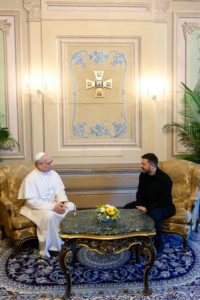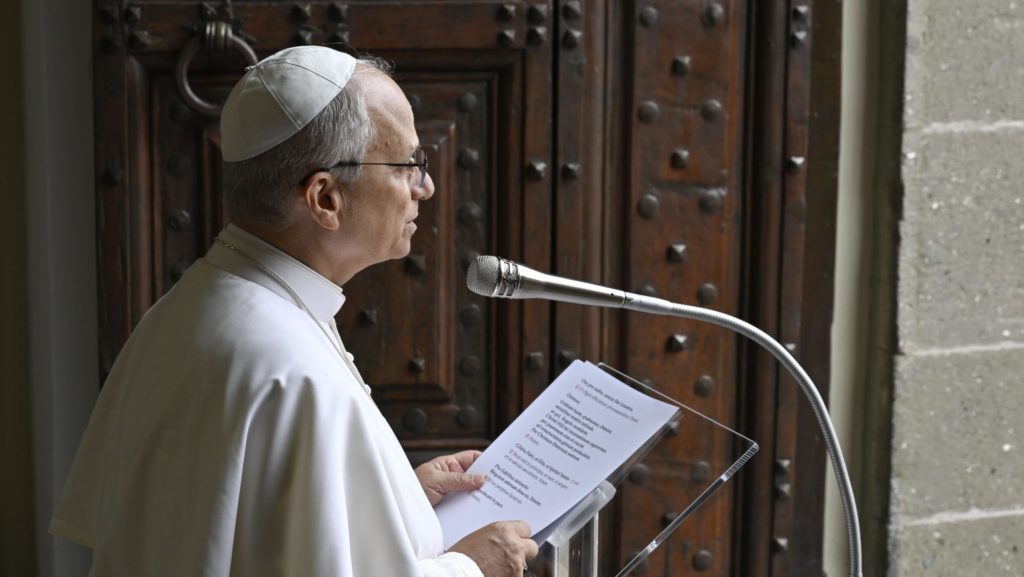When Pope Leo XIV casually switches from Italian to English to Spanish during his weekly Wednesday general audiences at the Vatican, he’s basically rendering half of the Vatican’s interpreters unnecessary.
But those moments are more than displays of linguistic dexterity. They reveal something deeper about the new pontiff: a preference for clarity over mediation, transparency over interpretation.
For a Church often caught between competing narratives and self-appointed interpreters of papal intention, Leo’s instinct to communicate directly and clearly may be one of his most important traits as he begins his new pontificate.
It is also a trait that has a lot to do with Leo’s ties to Latin America, where the Church’s voice has often been both a source of unity and a point of contention amid political, economic, and social upheaval.
The former Robert Prevost’s decades of service in Peru, first as a missionary and later as bishop of Chiclayo, gave him an intimate familiarity with the daily struggles of people on the “peripheries” of society.
The missionary thread is not the headline of his papacy, but it is the fabric out of which his style is woven. His emphasis on listening, on valuing lay leadership, and on involving women and young people in the Church’s activities all reflect habits formed in parishes and mission territories far from Rome. As a result, his public appeals on global issues from climate change to migration sound less like abstractions and more like pastoral urgencies.
Nowhere is this clearer than in Leo’s appeals for peace. He spent the first three months of his pontificate repeatedly urging an end to wars in Ukraine, the Middle East, and Africa. His messages emphasize the wars’ human cost rather than political abstraction.
“War is never inevitable. Weapons can and must be silenced. Those who make history are the peacemakers, not the makers of weapons,” he told ambassadors in May.

He has also warned that peace is not simply the absence of conflict: “Peace is built in the heart and from the heart, by eliminating pride and vindictiveness and carefully choosing our words. For words too, not only weapons, can wound and even kill.”
Leo’s straightforwardness extends beyond language. His willingness to explain decisions in real time — even logistical ones — signals a style of governance marked by openness. This is particularly striking in contrast to the tendency of Pope Francis to let ambiguity stand on some issues, leaving space for Vatican watchers and commentators to fill in the gaps, often sowing division within the Church he labeled to be for “todos, todos, todos” (everyone, everyone, everyone).
In Latin America, where political leaders often obscure motives and mistrust between institutions runs deep, a pope who communicates with transparency means a lot: Leo’s clarity reduces the room for distortion and strengthens the bond between shepherd and flock.
That doesn’t mean any of the challenges Leo now faces are solved. The first months of any pontificate — much like those of a new president — are a period of interpretation, as gestures and decisions are parsed for hints of priorities to come. In Leo’s case, those early signs point to a pontiff who values clarity, prioritizes peace, and carries into his global ministry the lessons of Latin America. His pastoral experience in Peru may not define his pontificate, but it informs the way he approaches challenges, reminding the Church that leadership begins with listening and closeness.
At the same time, these first 100 days have underscored not only what Leo has said but also what he has not yet done. He has avoided sweeping personnel changes or dramatic reorganizations. This is a leader who does not rush decisions. And he plays those decisions close to the vest: We do not know who he will appoint as his replacement to lead the Dicastery for Bishops, nor what his first, programmatic document will be — an encyclical, an apostolic letter, or something else — or what it will be about.
His deliberate pace reflects a conviction that discernment requires time, and that leadership is as much about listening as it is about acting. In this sense, he seems to embody what Romans call the wisdom of the Italian summer — a season when life slows down — and what Latin Americans would recognize in the tradition of the siesta: a cultural rhythm that values patience, reflection, and the right timing.
For Leo, this patience may prove to be a hallmark of his pontificate: a willingness to wait, listen, and act only when the moment is ripe. Acknowledging that God created us with two ears, two eyes, and one mouth.
In an era when the Church faces both external pressures and internal tensions, Leo’s transparent style may prove as consequential as any policy or reform. His ability to speak with clarity, to call for peace with urgency, and to match words with the patience of discernment suggests a pontificate that will be less about being interpreted and more about being heard.
For Catholics in Latin America, and indeed across the world, that combination of clarity and patience may be a source of hope: a reminder that the Gospel still speaks plainly, and in God’s own time, to the heart of human experience.

